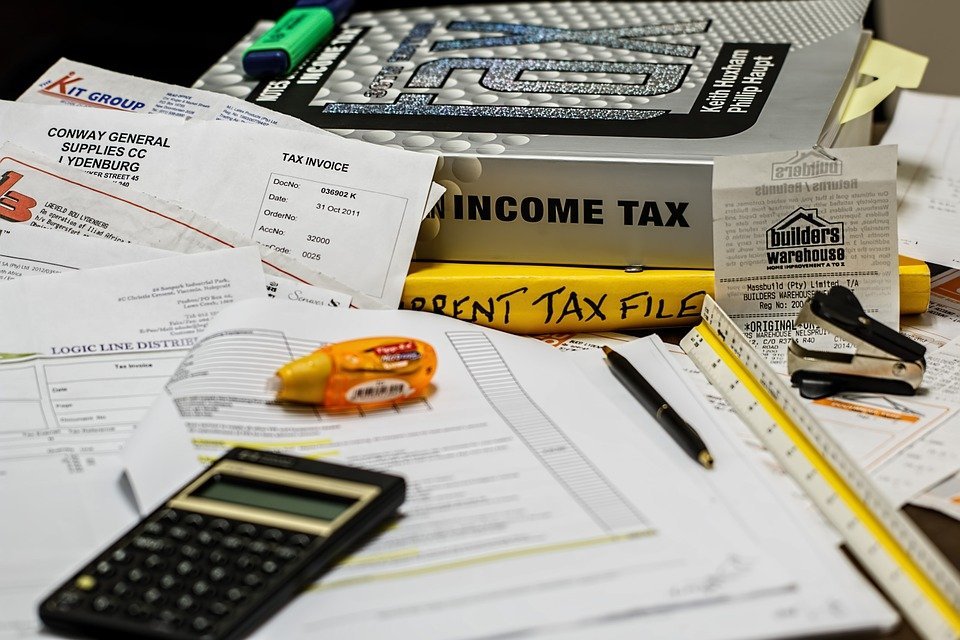Taxes are a thorn in the side of businessmen, nine-to-five workers, and entrepreneurs.
But, every cloud, fortunately, has a silver lining. The silver lining so taxes are tax write-offs, exemptions, and deductions. They happen more frequently than you might think, and this page will hope to tell you everything it is for you to know about them.

It is important to add while on the topic of taxes if you are self-employed or an entrepreneur (which you will need to be to be claiming tax write-offs) – you will want to ensure your taxes are filed electronically by the deadline, lest you receive penalties and fines. The U.S. Inland Revenue Service is not known for kindness and using the defense that you were ignorant of the law will, unfortunately, not work.
Tax write-offs, here’s what they are and how they work.
Tax Write-Offs
Tax write-offs can be of great benefit to an entrepreneur trying to reduce his outgoing tax bills. They can also be very complicated, admittedly, but by having decided to click here and read this article, they won’t be any longer.

Tax write-offs can be defined as anything that can be written off of your yearly tax payment. There are many things that can be written off, but mostly they are necessary expenses. An example of this would be that if your computer was a computer repair firm, naturally you would need a computer to work on and schedule appointments, so if you had to buy a new computer [due to the old one breaking] – you could write this new purchase off as a tax write-off.
Any money that is spent on necessary parts of your business to keep it running can be written off of your yearly tax payment. Learn more with this enrolled agent exam prep course.
How Do They Work?
Tax write-offs, or deductions, lower your taxable income. If you make $100,000 in a year and had $25,000 in write-offs, this means your taxable income would be $75,000, rather than the full $100,000. Self-employed workers and entrepreneurs, as previously mentioned, can write off necessary expenses related to their business.
This can also include [other than the examples cited above] – business miles, travel expenses, the cost of using your home as a home office, and more. Workers who are classified as W-2 can also qualify for write-offs. You can write off loan interest and other things such as charitable donations, mortgage interest deduction, and many others; W-2 employees can also use the standard deduction to reduce their yearly taxable income. 
What Does the IRS Allow to Be Written Off?
Realistically, providing you are self-employed, the IRS will allow you to write off virtually any reasonable business expense, but you must ensure these expenses are necessary and not extraordinary, relating directly to your business, and a reasonable sum. Here are a few important write-offs that any self-employed entrepreneur should know about:
- Mileage deduction – Mileage deduction, as previously referenced, means you can deduct every single mile driven for work-related reasons. It allows you to save a lot of money on your taxes and can ensure you do not end up paying an exorbitant amount of money toward your taxes;
- Business Start-Up Costs – Business start-up costs can be deducted from your yearly taxes, as it is no secret getting a business off the ground can be very expensive, and very time consuming;
- Home Office – Home office deduction allows you to deduct money from your yearly taxes toward running a home office, you can deduct money for electricity used, and equipment needed to turn your home into an office;
- Health Insurance – Health insurance deductions can also save you a lot of money in tax. If you are self-employed, you will have no employer paying for your healthcare, therefore you are allowed, according to the IRS, to write a chunk of your self-employed health insurance costs off.
You can find additional information
Deductible Expenses
Here is a further list of accepted deductible expenses you can add to your tax return.
- Legal and accounting fees for your business
- Advertising fees, for example, the cost of listing your business in an online journal, or in a newspaper
- Business use of your home [mentioned twice previously, see above]
- Office expenses, such as desks, chairs, computers, and other office-related equipment;
- Bank fees for your business account [they can be high]
- Stationary for your office
- Mileage deduction [mentioned, see above]
- Renting or leasing vehicles or machinery for the purposes of your work and the upkeep of your business
- Consultant fees
- Outsourcing fees
- Licensing fees to ensure your business can run [if you are a bar, a liquor license].

Now, with the help of this page, you know virtually everything that it is for you to know about tax write-offs and deductions. Hopefully, it should be a lot clearer now. If you have any further queries or problems, it may be worth contacting the IRA on their dedicated phone lines.






